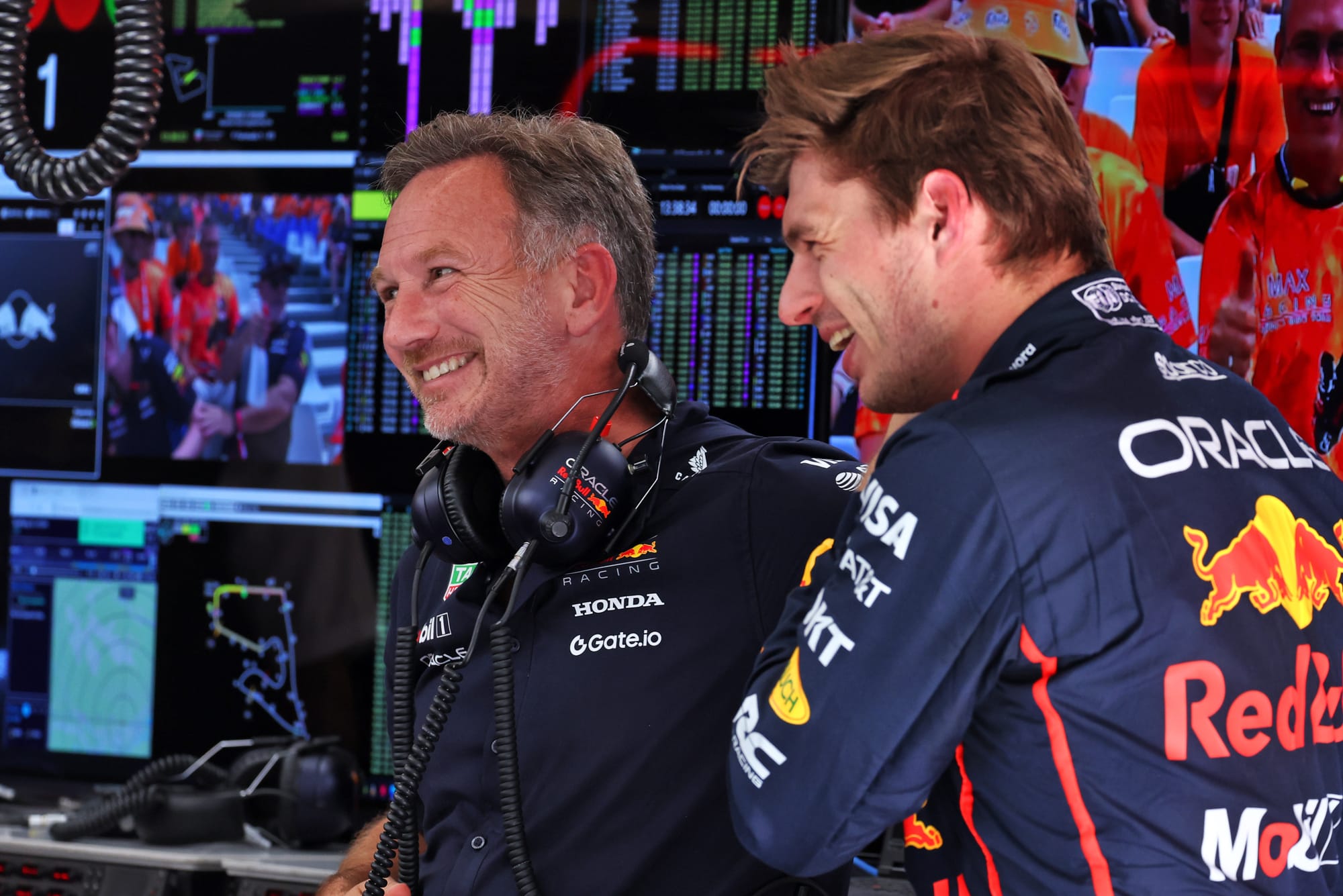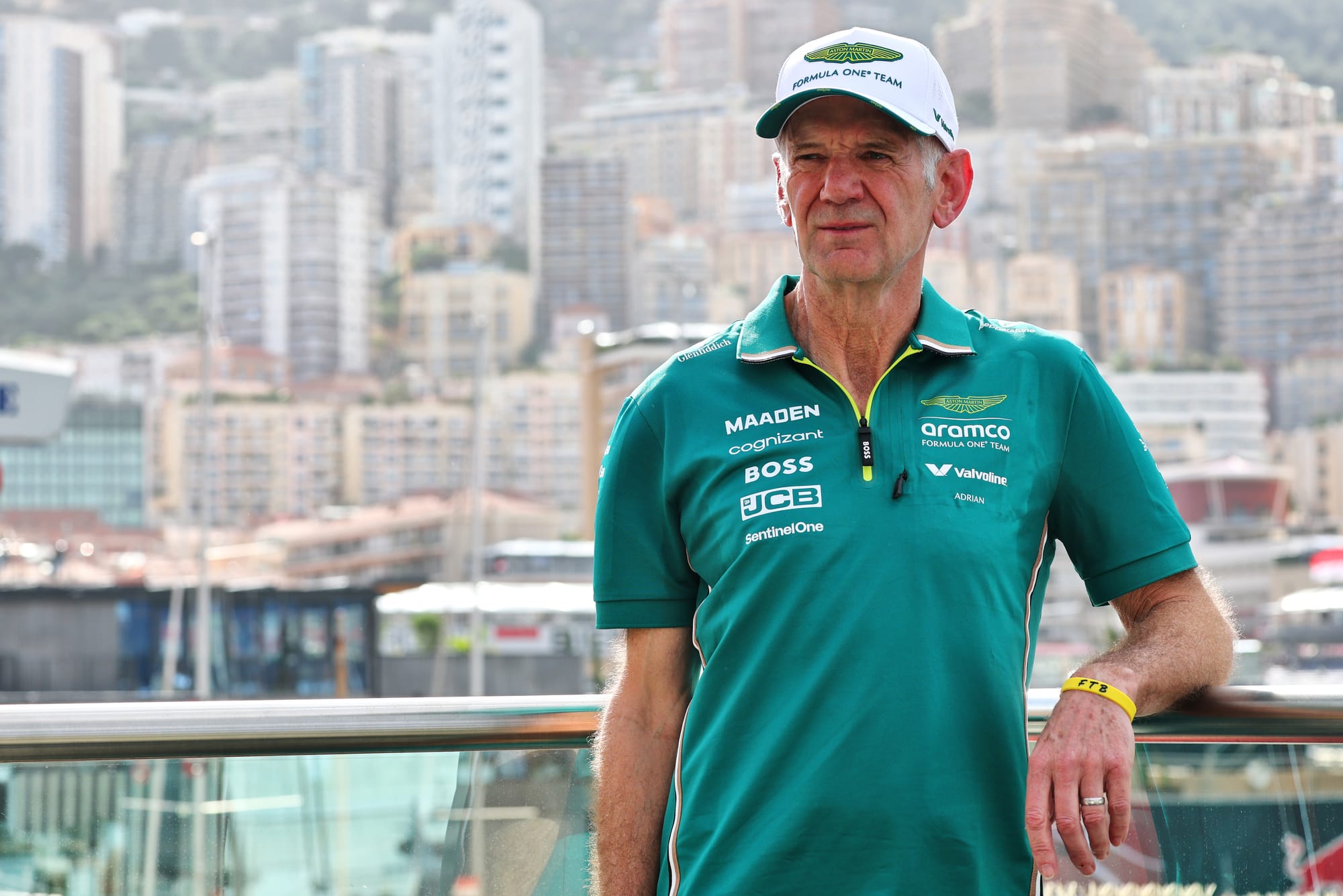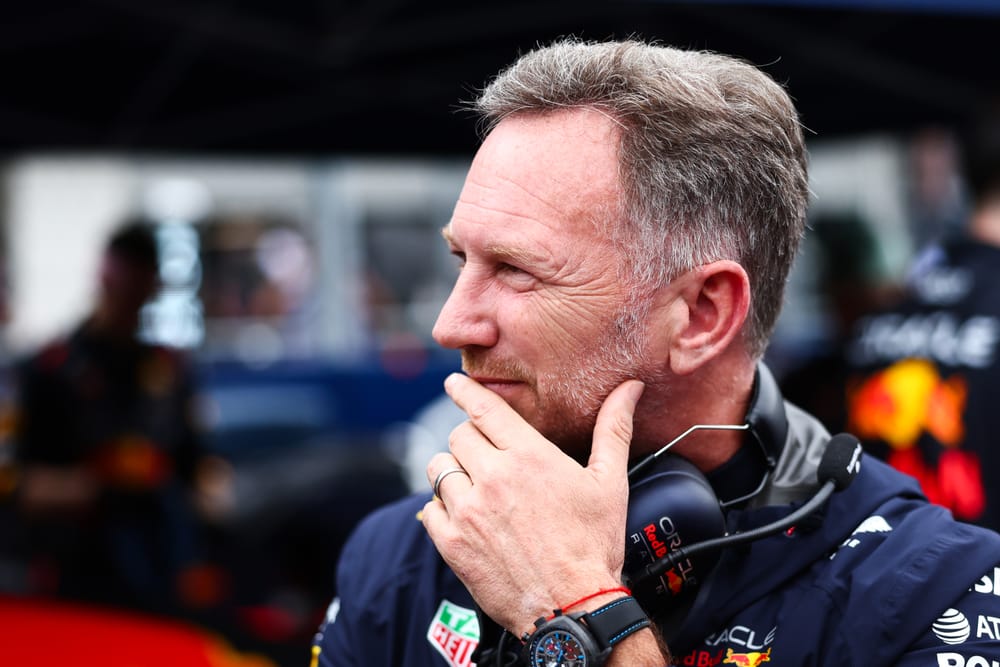Former Red Bull boss Christian Horner has emerged as a leading candidate for Aston Martin's Formula 1 team principal vacancy that will be created with Andy Cowell's move into a powertrains-based role.
Here's our take on the prospect of Aston Martin being the vehicle for Horner's F1 return, and on Cowell being moved aside.
Newey's team doesn't need external disruption
Gary Anderson
I said a few months ago after a Cowell interview was published that I didn't think he was giving enough credibility to the hiring of Adrian Newey. It read to me that he saw Adrian as just another one of the staff, which in reality is nowhere near what his position really is. He is the captain of the ship and he will lead it into being a winning team. Will it be next year or in three years? Only time will tell, but it will happen.
Adrian has moved through Williams, McLaren and Red Bull. He dragged them to success and in reality didn't get the credibility he deserved from them. He is now in a position with equity in a team and the ultimate backing of the big boss. For the others, if he says 'jump' the only question they should be asking is 'how high?'
Cowell was a very successful engineer with Mercedes when it was designing, developing and introducing its hybrid engine for the start of the 2014 season, but that is very different from being team principal of an F1 team. I'm from the engineering side of things and basically the current requirements of an F1 team need to be led by the engineering side and the team principal needs to look after the more day-to-day running of the team.
In my book, Horner was one of those people who didn't give Adrian the respect at Red Bull that he should have, as was Martin Whitmarsh when they were at McLaren. Whitmarsh has also been named as an Aston Martin candidate, though we understand he's not interested in returning. Why would Lawrence Stroll want to bring in either of Whitmarsh or Horner when they could very quickly upset the apple cart and set the team back months, if not years?
F1 is becoming a bit like the football premier league: the managers move around from team to team. But if I was Stroll, I would be looking inwards for a team principal.
Andy Stevenson has been driving to work at the same address for over 35 years, basically even before the start of Jordan Grand Prix. He has developed from being a mechanic to now being sporting director, he has grown right through from when this team was more or less operating from a lock-up to the metropolis that is now Aston Martin and he knows and understands how it all ticks. Give him the next step in his career and you will immediately see progress in doing what the team does better. But more importantly you won't be throwing a spanner in the works with someone from outside wanting to do things differently.
With Adrian's car for 2026 and the true grit of Fernando Alonso driving it, success could be just around the corner. Don't throw that all away before it has a chance to flourish.
If it's replicating Red Bull it probably needs Verstappen too
Glenn Freeman

Now F1 has moved almost completely to the model of team bosses being employees as they are in most other sports, rather than also being the team owners as they used to be, it has opened up the chance for someone to do what is often seen in other sports: grab as many people as you can from a rival that has been successful and hope to replicate the success they have had elsewhere.
Given what Red Bull has achieved in recent years you can see the logic: take its ex-team boss, its star designer, and its engine supplier, and see if you can get the same magic out of those pieces. It would be like when Ferrari plucked key personnel from Benetton in the mid-1990s, only on steroids.
Of course, there's one major element missing when making that comparison. Ferrari's 1990s transformation wouldn't have worked without Michael Schumacher. Could Max Verstappen be tempted to switch from blue to green as well, especially if Red Bull gets off to a rough start with the new rules in 2026?
Whatever tension there might have been behind the scenes previously at Red Bull could probably be brushed aside or repaired if there are world championships to be won.
This level of turnover cannot be good
Scott Mitchell-Malm
If this was Alpine being linked with yet another team boss change then the derision would be palpable. The extent of Aston Martin's investment, the sheen around the whole enterprise, and the heavyweight figures involved ultimately afford this team a bit more grace.
Still, if there's another team boss change then Cowell's successor will be the fourth in five years - a degree of turnover that is hardly a sign of a strong team with a clear vision.
This seems to be at least partly influenced by the arrival of Newey and what he has suggested/how he thinks Aston Martin needs to be run. So someone new has Lawrence Stroll's ear and so the Aston Martin big boss continues his habit of discarding and appointing senior figures - which isn't great, but when it's Newey, you can at least understand it!
What I find a bit harder to just brush aside, though, is the feeling that so many big names coming and going indicates Stroll isn't quite in touch with what's really needed here, and thinks spending money to assemble a collection of winners will make his team a winner by default. He already seems to have slightly revised reality by claiming he said when he took over the team it would be a 10-year journey to win – actually, all his messaging in 2021 was that it would be a four or five year timeline.
That presumably just reflects it's all taking longer than he expected or wanted. Another change of leadership fits with that. Success can't be bought, but it can be very expensively assembled. You can't knock a lot of what Stroll's done in putting his money where his mouth is but so far where's the reward?
It's hard to see how this much turnover is consistent with a team that is definitely getting the most out of itself. Aston Martin must be at risk of wasting a massive opportunity with the new rules in 2026. And if it keeps chopping and changing senior leadership then it will end up weaker than the sum of its very expensive parts.
'Supergroup' technical strategy always looked over-confident
Matt Beer

As Aston Martin recruited more and more top senior technical names who’d had success - and leadership positions - at other teams, I couldn’t help wondering from the outside if this risked being a jigsaw that just couldn’t fit together.
The logic of grabbing people who’d proved themselves elsewhere was straightforward enough. But the nature of this recruitment drive meant creating hierarchies in which not everyone who’d been used to being a form of boss somewhere else could have that same authority at Aston Martin.
What we understand of the Cowell/Newey situation and reasons for Cowell’s role change, plus the other Newey-inspired changes at the team, suggests a jigsaw with incompatible pieces being smoothed so it does fit together. So as Gary argues above, the priority for this next piece of recruitment is finding a smooth fit. Most of Horner and Newey’s last time together suggests that’s what they are. But can the fact it didn’t end that way really be shrugged off?
Horner's a no-brainer choice
Jack Benyon
While it wouldn't be my choice personally, Horner is a no-brainer for Aston Martin.
Promoting someone from within who doesn't have either the experience of running a team, or the perceived reputation and gravitas to deal with the number of personalities this team now possesses could be an absolute recipe for disaster.
The only person available on the market who has anything like the experience required to satisfy Stroll, Newey - the list goes on - and the proven credentials is Christian Horner.
On a slightly tangential note, it is a worry how quickly F1 teams have expanded beyond just having a team principal who can run everything to the sprawling department style we have now, and how that impacts the ability for people to be promoted into these positions. The more complicated the team boss role becomes, the more difficult it is to promote someone into it. How does young talent cope with trying to replace someone with the experience of a job which is more complicated than it was five years ago, and is unrecognisable from the role 15 years ago? And how do women and people from more diverse backgrounds - already statistically at a disadvantage - overcome that?
That's not Aston Martin's fault! And there isn't an obvious answer, other than teams have to work hard to try to offer a pathway for budding young people - from all backgrounds - to rise up the ladder. Unfortunately, the roadblock at the top is feels bigger than ever.



